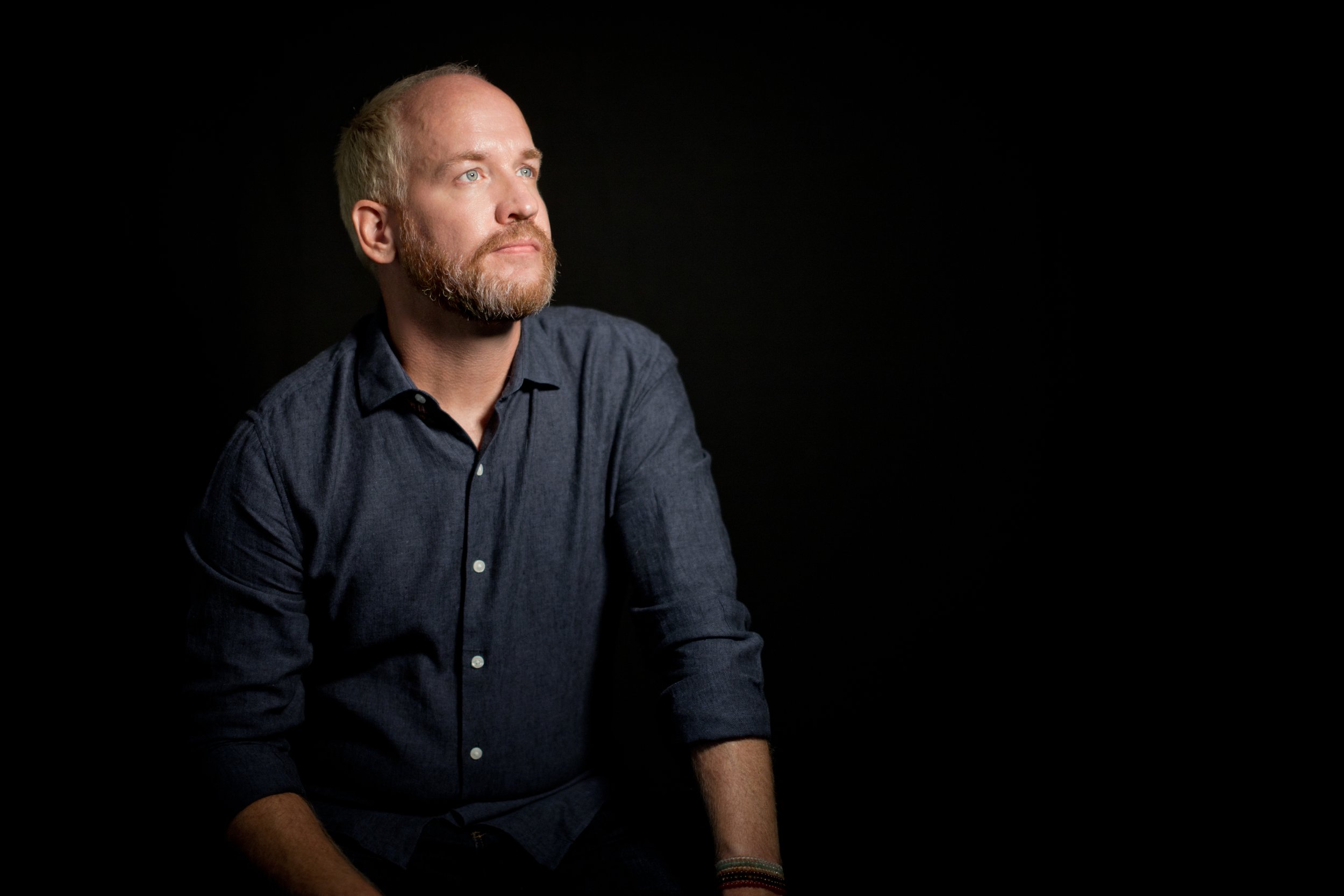
Shibori is a traditional Japanese resist-dyeing technique. A pattern is made by binding, stitching, folding, twisting, or compressing a natural fabric, dyeing, and then releasing the bind and pressure to reveal its pattern. Techniques were ancestral, handed down exclusively within families.
When the fabric is returned to its flat form after dyeing, the design that emerges is the result of the bound and tied three-dimensional shape. The cloth sensitively records both the form and the pressure; the “memory” of the tied shape remains imprinted in the cloth.
“The technique spoke to me. We endure a lifelong process of unfolding, unbinding, unstitching, and unblocking. Little by little, we see that what we thought were stains, are intricate patterns; the design of unseen hands,” singer-songwriter Jesse Correll shares. The Nashville-based artist explores this parable on his latest album, Inner Shibori, out February 2022. It’s a timelessly and elegantly expressive record that feels like a singer-songwriter album draped in torch-song finery.
Inner Shibori is Jesse’s fourth record since 1994, and his second release after a 15-year hiatus from music. The 13-song release is an album oozing luxury and longing. The production approach; sophisticated and tastefully sentimental songs; and the smooth musicianship recalls Frank Sinatra and Chet Baker’s lonely balladeering, and the type of recordings made at Capitol Studios in Hollywood in the 1950s and 1960s. The songs are also interwoven with threads of Americana, R&B, soul, and folk, recalling contemporary artists such as Ray LaMontagne, Andy Shauf, Jacob Collier, and Madison Cunningham.
Jesse’s last release, 2015’s Held Momentarily, was an intimately soulful bedroom production that captured the joys of romantic and personal reclamation. For Jesse, this included a new love relationship and returning to music. Jesse is a Berklee graduate and a lifelong musician, and he came back with a vengeance. He left New York, and followed his muse to Music City, where he blossomed as a songwriter, a member of the Nashville music community, and a popular Podcaster. Parallel to this evolution another dynamic was playing out. Jesse and his lady were two marriage-resistant lovers that decided to do the thing, but unfortunately their seven-year union unraveled in under a year of marriage.
What seemed and felt like a bottom, like Sinatra’s In the Wee Small Hours come to life, became a turning point of self-reflection, acceptance, and even a love rebirth. This journey became an inner Shibori experience for Jesse, and he processes it on his album. “It was like a breakup with my former self. I had been running from old stuff—like early abandonment—and I needed to address them to move on. There is definitely a story of the greatest love ever followed by the worst pain ever. To the outside, I’m sure it looked like wtf happened,” he says laughing.
Inner Shibori opens triumphantly with the reflective and redemptive “Go Deeper.” It is a simmering classic R&B track detailed with gospel church organs and heavenly harmony vocals. Select other album standouts include “One More Time,” “Begin Again, Again,” “Life,” “An Icy Cold,” and the concluding track, “Worst Of Both Worlds.”
“One More Time” is acoustic soul-pop glistening with R&B fixings and balmy harmony vocals. Tone wise, the song strikes a balance between sardonic and playful as it grapples with love: what is it, and can we be addicted to it? The lyrics are sweetly vulnerable, featuring lines such as:
Self-help books on audio | From a starter home back to a studio | Sign me up, I’m a puppet | I’m just hanging on your line | I’m a fool, but fuck it | I just want to see you one more time.
The tender folk-jazz track, “Begin Again, Again,” documents a time-lapsed reunion between Jesse and his lady after 90 days apart. “This song makes failing at love the goal—to do so, then repair—in order to get to a more mature kind of love that is not typically modeled in film, music, or literature,” Jesse says.
“Life” is a searching piano ballad with stirring lyrics such as:
Now the final moments come | The long farewell, a sort of breaking up | One more breath and I’ll take flight | Into forever, but it’s not goodbye | It’s just life.
The hauntingly ethereal, “An Icy Cold,” is dynamically enhanced by Jesse’s stately string arrangement, and it features harmony vocals by singer-songwriter Anna Tivel. The song is also an evocative lyrical journey with vibey imagery such as:
Seaweed ‘round my ankle | A corkscrewed tentacle | Dragging me ever deeper | And just when we got comfortable | Down to the sea floor I’ll go again.
The final song, “Worst Of Both Worlds,” is a blunt confessional, describing Jesse’s wedding, a doomed honeymoon, and then colliding, fighting, and paralysis. The song features moody, chiming guitar licks that hit that sweet spot between jazz and worldbeat. “Worst Of Both Worlds” floats away with a jam that showcases the power, prowess, and poise of the assembled musicians playing as an intuitive unit.
The 13 tracks of the Inner Shibori came to life during three days of tracking at Skinny Elephant Recording, in Nashville with engineer Dylan Alldredge. The album was produced by Jesse and guitarist/singer-songwriter/producer Anne McCue. The pair also handpicked the core band and the session auxiliary musicians.
Reflecting on the Inner Shibori, Jesse says: “This album felt like a homecoming. Rebirth, the record I made at the end of my Berklee years, hinted at my musical identity. I can see now that I got lost for a while, and struggled to find my way back. Held Momentarily was a turning point. I needed all of those years of being lost to be able to fully express myself as a musician; as a human being. Making this record, and finding my home in the Nashville music community, has been a peak experience that I will never forget.”
:::





